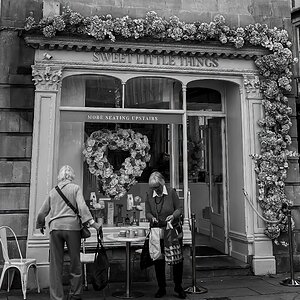icassell
No longer a newbie, moving up!
- Joined
- Jun 7, 2008
- Messages
- 9,899
- Reaction score
- 15
- Location
- Arizona
- Can others edit my Photos
- Photos NOT OK to edit
Possible. It would make sense... but honestly, I have no idea.Take a look at a lot of the pictures from the best photographers, and you'll usually see their subjects are in 1 of the 4 power points. It just helps keeping your subject from looking boring.
Is that why my 7D seems to focus there instead of in the center? (I know I can set it manually, was just curious if that was the thinking behind the auto settings.)
Hmmm ... does it do that on auto? I know it is supposed to look at all 19 points, but didn't read anything about corner weighting. I have mine set manually.













